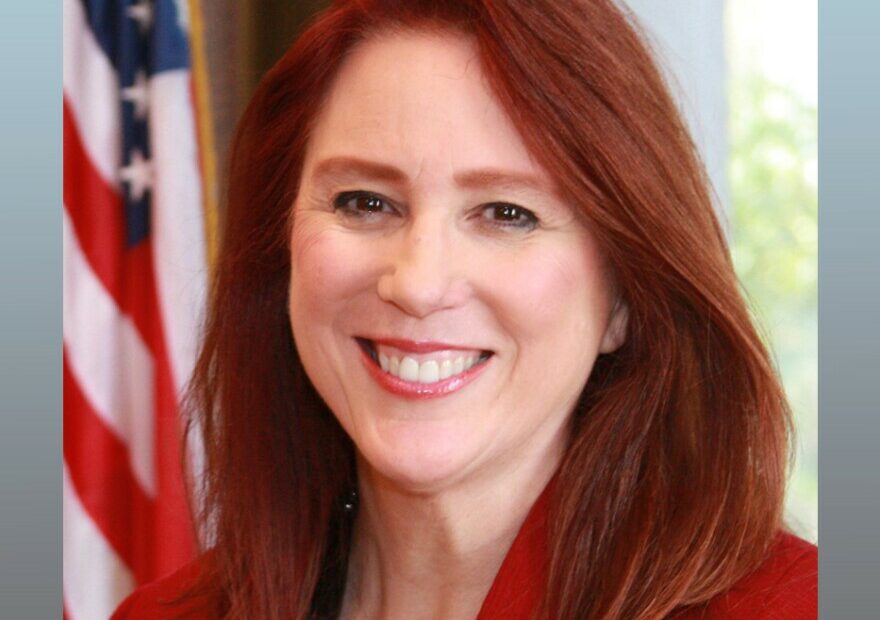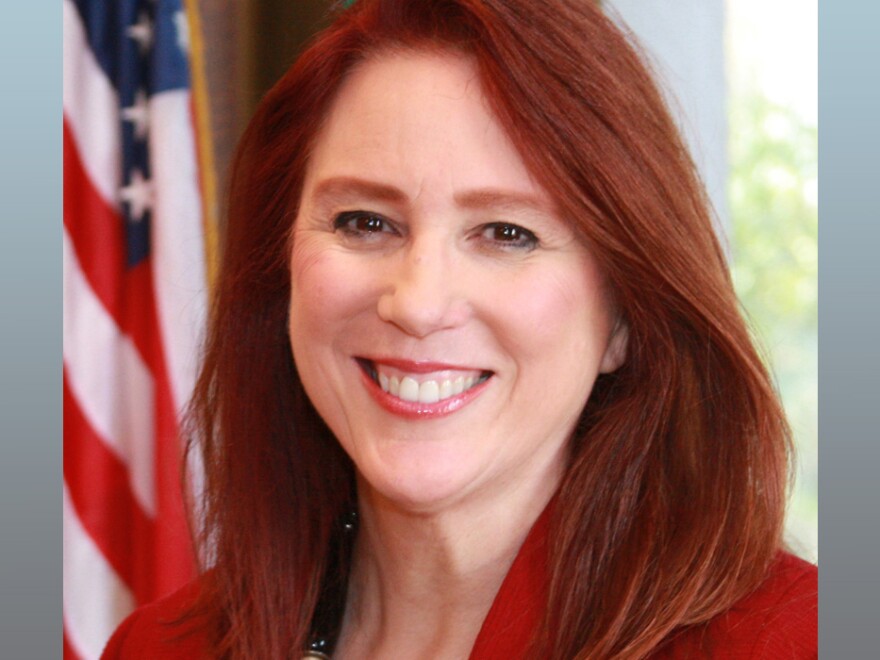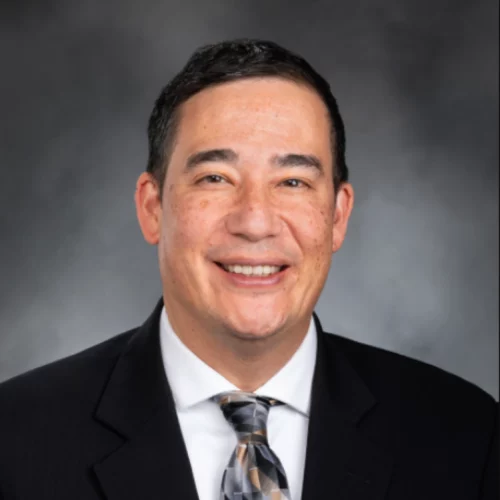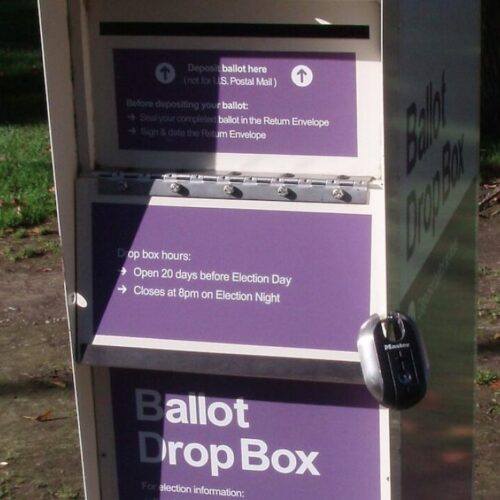When Washington Gov. Jay Inslee issued his August mandate that state employees get vaccinated against COVID-19, he encouraged other independently elected statewide officials to require the same of their employees.
All but one did. The lone holdout was Secretary of State Kim Wyman, Washington’s only Republican statewide officeholder, who recently announced her resignation to accept a top election security position with the Biden administration.
“We determined that we didn’t want to require it as a condition of employment,” Wyman said in an interview prior to her announced resignation.
She added that she’s vaccinated and about 70 percent of her staff has voluntarily showed proof of getting the vaccine.
Inslee’s office declined to specifically address Wyman’s decision, noting that the vaccine mandate was discretionary for separately elected officials.
“Many have taken steps to move their employees toward vaccination and to protect their health,” Tara Lee, Inslee’s communications director, wrote in an email.
She also said: “We are grateful for all those employees who chose to get vaccinated to protect their co-workers and those they serve.”
Wyman said her office was forced early on to mitigate for COVID-19 because about half of her roughly 300 employees couldn’t work from home due to the customer service or election oversight nature of their work. In addition to overseeing elections, the office is responsible for the state archives, state library and the corporations division.
The secretary of state’s office operates 27 locations across Washington.
“Our goal was to continue to provide quality customer service and perform those essential functions,” Wyman said.
Pressed about why she didn’t follow Inslee’s lead and mandate vaccinations, Wyman said in the interview that her office had experienced a “very low” number of COVID-19 cases. A spokesperson later declined to release the exact number citing medical privacy concerns.
Wyman also said in the interview that daily symptom screenings, social distancing and other mitigation measures were working.
“I wasn’t willing to fire someone who, for whatever reason, didn’t want to share with me their vaccination status,” Wyman said. “I don’t want to politicize this. It was just a policy decision.”
Wyman said that while she’s personally not concerned about long-term side effects from the vaccine, she understands that some people are “afraid to get the vaccine.” She said she didn’t want to put those individuals in a position to choose between getting the shots or losing their job.
One state library employee who contacted the public radio Northwest News Network raised concerns about working alongside unvaccinated staff in buildings without special air handling or filtration systems.
The employee, who asked not to be identified for fear of reprisal in the workplace, said there was a push in August to get most secretary of state employees back in the office, at least three days a week.
“By and large, employees at [the secretary of state’s office] are very fond of, and loyal to, Kim,” the person wrote. “However, I do know that some have been disappointed about her not following the governor’s mandate.”
The employee added that management has allowed some flexibility about working from home, and also accommodated staff who are at higher risk from COVID-19 when possible.
A spokesperson for the secretary of state, Kylee Zabel, confirmed that beginning in August the majority of employees returned to the office. But Zabel also said many employees are still working a hybrid schedule while some considered high-risk continue to work remotely.
Asked about employee concerns, Wyman said that when safety issues are raised they are addressed “on a case-by-case basis.” She also noted that some of her employees are represented by unions and can bargain around work conditions.
“My goal is always to have a safe work environment for all my employees,” Wyman said.
The Washington Federation of State Employees represents 87 staff at the secretary of state’s office. The union’s executive director, Leanne Kunze, said there have been demands to bargain over telework agreements and return-to-work requirements in the context of COVID-19 health and safety.
“The types of concerns raised during this pandemic are similar to other departments, such as return to work, masking and other measures,” Kunze said.
By not imposing a vaccine mandate Wyman acknowledged there could be instances where a vaccinated worker — who doesn’t feel comfortable sharing office space with unvaccinated colleagues — might not have a choice if they want to keep their job. That could be a particular concern in the case of an immunocompromised worker.
“We do have some cases where we have a position where it is going to require the employee to be on-site, in-person doing the work and there’s no way to accommodate something around that,” Wyman said.
That’s the inverse of what’s happening in most other state offices and agencies where vaccine mandates have been implemented. In those workplaces, the onus has been on unvaccinated workers to choose between getting vaccinated or losing their jobs.
As of October 18, Inslee’s deadline for workers to get vaccinated, state agencies were reporting that 1,785 employees, or about three percent of the workforce, had either resigned, retired or been fired due to the mandate.
It appears that many, if not the majority, of those employees likely received either religious or medical exemptions from the mandate, but were not accommodated by their agency to continue working while unvaccinated.
The Inslee administration took a tough stance when it came to accommodations. Essentially, the rule was that accommodations could only be granted in cases where the employee could be moved to a back office or work-from-home position.
Inslee’s mandate applied to cabinet level agencies, health care workers and was later extended to educational employees.
The governor, however, did not have the authority to mandate vaccines in the other eight independently elected state offices. Nonetheless, all but the secretary of state’s office ended up imposing their own mandates.
A recent informal survey of those agencies by the Northwest News Network found that firings or “separations” appear to be fairly rare and, in some instances, accommodations have been easier to come by than in agencies controlled by Inslee.
Among the survey findings:
The attorney general’s office had 52 employees request exemptions. So far nine have been approved and six of those workers received accommodations. The other three have not been decided yet. The remaining requests for exemptions are still pending.
Five of the agency’s 1,536 employees left their jobs citing the vaccination policy. One was fired.The Department of Natural Resources, led by state Lands Commissioner Hilary Franz, said it lost seven workers to the vaccine mandate as of October 18, and is currently working through accommodation requests. No other data was provided.
Insurance Commissioner Mike Kreidler’s office, which imposed its vaccine mandate the same day Inslee announced his, also lost seven workers. That’s just under three percent of its more than 240 employees. All had received exemptions, but were not granted accommodations to keep working unvaccinated.
The state treasurer’s office, headed by Mike Pellicciotti, had two requests for exemptions from its 60 employees. Both were approved, but neither employee was accommodated. Both left the agency.
The office of superintendent of public instruction (OSPI), headed by Chris Reykdal, lost 4 employees, including one who retired. It received no requests for medical exemption requests, but had 14 religious exemption requests. Twelve of those were approved and all 12 were accommodated. The vaccine mandate applied to both OSPI staff and those serving on boards and commissions housed within the agency.
None of State Auditor Pat McCarthy’s 415 employees lost their jobs after that agency found ways to accommodate all 26 employees who had requested either medical or religious accommodations, mostly by allowing them to continue working remotely.
The small office of Lt. Gov. Denny Heck, with just five employees, has reached 100 percent compliance with no requests for accommodations and no firings or retirements due to the requirement to get the shots.
- Inslee’s office, with 60 employees, said one staff member requested a religious exemption, but wasn’t accommodated. That person found a position with another state agency where they could be accommodated, according to an Inslee spokesperson.
The Washington Supreme Court also imposed a vaccine mandate that took effect on November 1. A court spokesperson said no employees were expected to lose their jobs as a result of the requirement.
Separately, the Administrative Office of the Courts, with 282 employees, has granted 13 of 14 requests for accommodations with one still under review, the spokesperson said.
It’s still possible a vaccine mandate could be imposed at the secretary of state’s office after Wyman resigns on November 19 to begin her new job in Washington, D.C. Inslee will appoint Wyman’s replacement and that person will have an opportunity to review the office’s COVID-19 policies.




















